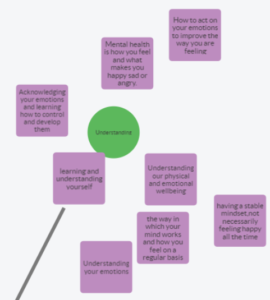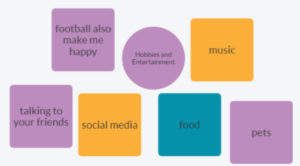#BeeWell – Measuring wellbeing in secondary schools across Manchester
The DfE have recently published their Schools Policy Appraisal Handbook, which includes ‘methods to appraise the impacts of education policy on wellbeing, offering a different perspective to models that link investment in education to wages, productivity or growth.’ This is a step forward to being able to use wellbeing measurement robustly, confidently and consistently and supports progress towards measurement of wellbeing in schools at a national level.
This week’s blog is written by two of the young people involved in designing the #BeeWell programme that will begin to measure the wellbeing of young people in secondary schools across Greater Manchester annually from Autumn 2021, in collaboration with the University of Manchester, the Anna Freud Centre and the Greater Manchester Combined Authority. The What Works Centre for Wellbeing is a #Beewell partner organisation.
In this blog they give some insights into how they are working with other young people and academics to design the survey.
Over the last 12 months, the #BeeWell team has been running workshops in 12 pathfinder schools across Greater Manchester, asking young people: what does wellbeing mean to you? What are the drivers of wellbeing? What makes us thrive?
All the ideas from these workshops have fed into a Questionnaire Advisory Group, which we sit on along with researchers from the University of Manchester, The Children’s Society, Department for Education, Office for National Statistics, Public Health England and others.
In order to gather a large range of opinions from across Greater Manchester we have worked with more than 150 young people so that we can identify and document the key areas of wellbeing that young people themselves see as essential.
The domains of wellbeing identified were:
- Meaning, Purpose and Control
- Understanding Yourself
- Emotions
‘Understanding yourself’ came through strongly in the workshops with young people

The drivers of wellbeing identified by young people were:
- Health and routines
- Hobbies and entertainment
- School
- Family/home environment, local environment and society
- The future
- Relationships
Hobbies and entertainment were regularly raised by pupils as a driver of wellbeing

The information we gathered highlighted the importance of non-academic skills for young people and how young people saw that having extra-curricular activities improved their overall wellbeing.
From this we discussed how best to ask young people about these areas of their life and how to gain the best information on young people’s lives. This helped us identify the proposed items for the survey, drawing on the academic literature and the ideas of the group, which were then tested with young people to see if they worked.
One of the pathfinder schools also created a manifesto for delivering the survey:
- Make it anonymous and optional for students
- Present it in a positive way
- This is about individual experiences, so support should be individually tailored
- This is not a tick box exercise
Next, we worked with a small group of young Peer Reviewers to make sure the survey felt appropriate and engaging. We held a final webinar for young people from our pathfinder schools to sign off the survey and the #BeeWell framework. We are also working with practitioners who support young people with special educational needs and disabilities to make sure the survey is inclusive and accessible.
Young people have been at the heart of the design process for the questionnaire, with Pathfinder Schools and Youth Groups across Greater Manchester being involved from the start. Young people’s voices have been valued, from the naming of the project, and all the way through the selection of the questions.
Having young people work with Advisory Boards was not only an incredible opportunity for them to make real change within Greater Manchester, but brought fresh perspective and insights and has ensured that the questionnaire was genuinely created with young people in mind – with the inclusion of nuanced topics, such as the impact of the future, or the necessity of sleep.
The project has not only allowed young people to be co-creators, but has allowed their often-undermined voices to be championed within a professional setting.
The questionnaire will be rolled out across schools in Greater Manchester in the Autumn of 2021. It is the first wellbeing survey in the UK which seeks to cover all secondary schools in a city-region. It will provide valuable insights and information for school leaders, charities, businesses, other local actors and policymakers to provide appropriate support services and make immediate improvements.
Want to take part?
Schools can sign up to #BeeWell on www.gmbeewell.org. If you have any questions about the programme get in touch on beewell@manchester.ac.uk.
